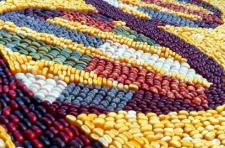The disturbing thing that happens when you tell people they have different DNA
By Ana Swanson,
Wonkblog [The Washington Post]
| 05. 13. 2016
Untitled Document
The first real interview I ever did was in 1999 in Dubrovnik, Croatia, the white-stone city perched on the Adriatic Sea that is now famous as King’s Landing in the TV series “Game of Thrones.” But less than 10 years before, that beautiful city had been the site of a siege, in a war that turned the former Yugoslavia against itself.
I had stepped into a Serbian Orthodox Church, cool and dark against the bright sun outside. The church’s caretaker, an older man with a massive white mustache, told me how the city had descended into chaos during the conflict, which pitted mostly Catholic Croats against mostly Orthodox Serbs and Muslim Bosniaks in the early 1990s. Former friends and neighbors spurned one another until there was no place in the community where the Orthodox caretaker and his Catholic wife were accepted, he said, with tears falling. The church was still damaged from the bombings.
One of the great mysteries of ethnic conflict is how it can suddenly and drastically cleave into groups people who formerly considered themselves one community. In...
Related Articles
By Arthur Lazarus, MedPage Today | 01.23.2026
A growing body of contemporary research and reporting exposes how old ideas can find new life when repurposed within modern systems of medicine, technology, and public policy. Over the last decade, several trends have converged:
- The rise of polygenic scoring...
By Stephanie Pappas, LiveScience | 01.15.2026
Genetic variants believed to cause blindness in nearly everyone who carries them actually lead to vision loss less than 30% of the time, new research finds.
The study challenges the concept of Mendelian diseases, or diseases and disorders attributed to...
By David Cox, Wired | 01.05.2026
As he addressed an audience of virologists from China, Australia, and Singapore at October’s Pandemic Research Alliance Symposium, Wei Zhao introduced an eye-catching idea.
The gene-editing technology Crispr is best known for delivering groundbreaking new therapies for rare diseases, tweaking...
By Josie Ensor, The Times | 12.09.2025
A fertility start-up that promises to screen embryos to give would-be parents their “best baby” has come under fire for a “misuse of science”.
Nucleus Genomics describes its mission as “IVF for genetic optimisation”, offering advanced embryo testing that allows...




